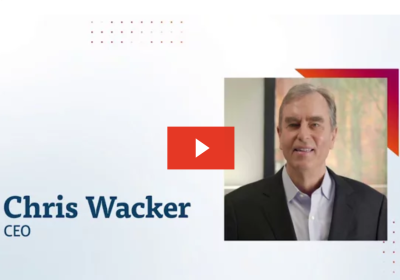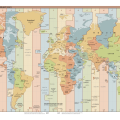In a recent Q&A article on the evolution of enterprise content management, Laserfiche CIO Thomas Phelps did a very nice job explaining how this technology today is about so much more than just doing things faster, more efficiently and affordably. As Thomas discusses, digitizing your documents and then automating their processing opens your enterprise to endless, unknown advantages and opportunities through machine learning and artificial intelligence. Advantages and opportunities that would not exist otherwise
That article got me thinking about enterprise content management (ECM) in less developed countries and how simply digitizing your documents affords a whole range of different advantages that folks in more developed countries might not fully appreciate.
Take for example Laserfiche’s sale a few years ago to Iraq’s Council of Ministries, that country’s equivalent to the U.S Executive Office of the President. When I congratulated and thanked our Iraqi solution provider, a native of Baghdad now raising his family there, it was he who thanked me.
As he explained it, the digital databases he is building allow the fledgling Iraqi government to provide services for its citizens faster, more efficiently and affordably. This, in turn, bolsters public confidence and support in the government. The databases he is building act as digital infrastructure, he says, providing a bulwark against continued disruption which can threaten a struggling government’s very survival.
Costa Rica’s social services provider FODESAF spent $50,000 on a Laserfiche system now allowing for the collection of $12 million in delinquent tax payments used to finance its education and health care services. To put those numbers into a perspective, that’s equivalent to $10.6 billion in added revenue for the U.S. Department of Social Security, FODESAF’s U.S. equivalent.
Costa Rica’s white sand beaches and robust ecotourism industry have helped lift that country’s poverty rate from 45 percent to 15 percent. But that number hasn’t budged in 20 years sparking some unrest. Now as FODESAF digitizes documents throughout all its ancillary offices the IT department there says that means so much more than doing things faster, more efficiently and affordably. As Robert Delgado Castro, the agency’s debt control analyst put it, “It means getting more money to Costa Rica’s poor.”
Similarly in Ghana, the director of the Public Records and Archives Administration, Felix Nyarko Ampong said at a Laserfiche conference at the university there last year that modernized record-keeping is playing a “critical role in national development.” He credited that modernization with averting a boundary dispute between Ghana and Cote d’Ivoire over the Dzata oil field. Thus saving “substantial oil treasure,” for a nation ranked between Angola and Myanmar among the world’s poorest nations.
The promise of digital transformation in developed countries opens up unknown horizons for transforming the very nature of your enterprise. In developing nations, the opportunities are much simpler but in some way so much more promising, as they can provide the very foundation on which that enterprise or government sits, survives and eventually thrives.









